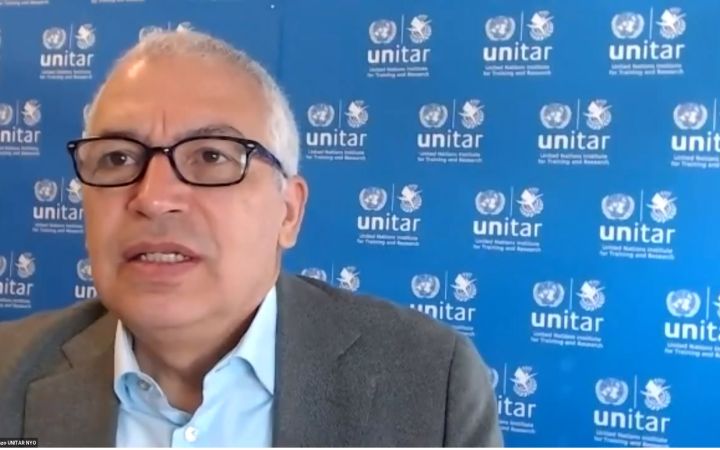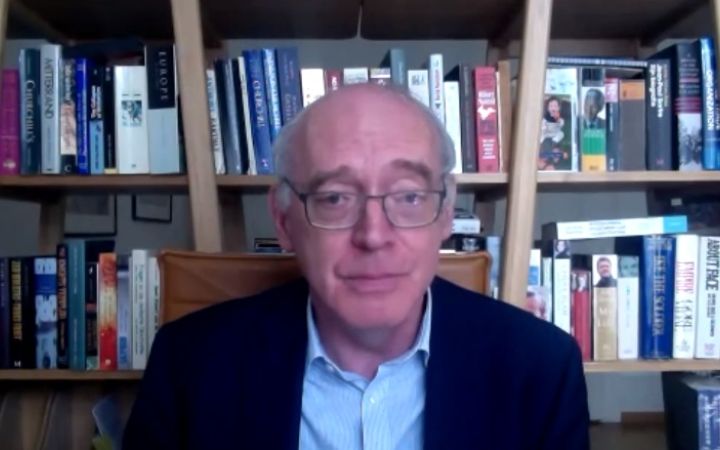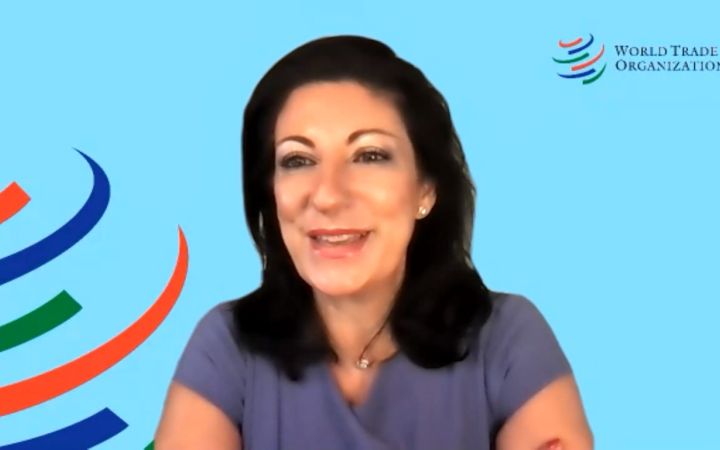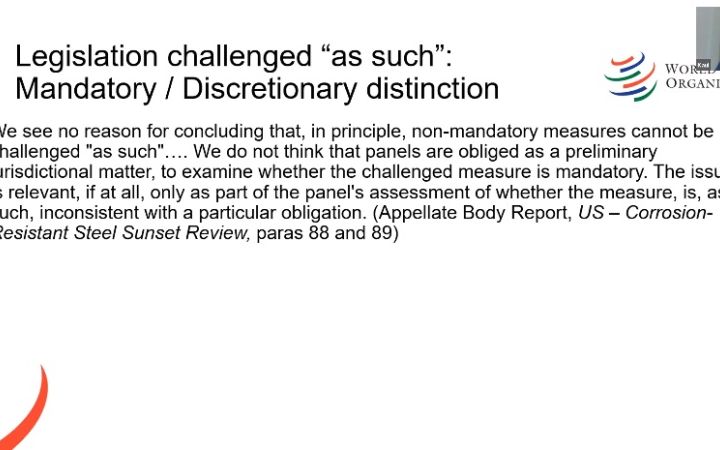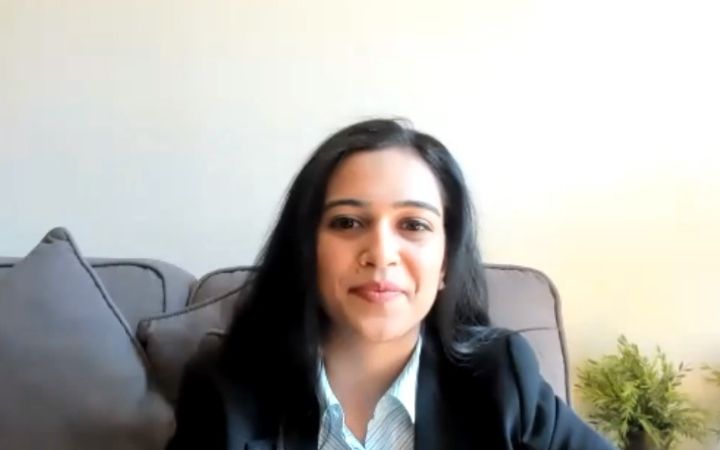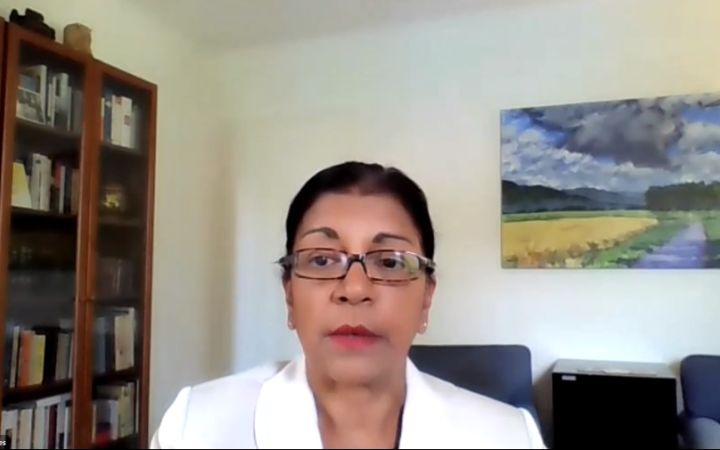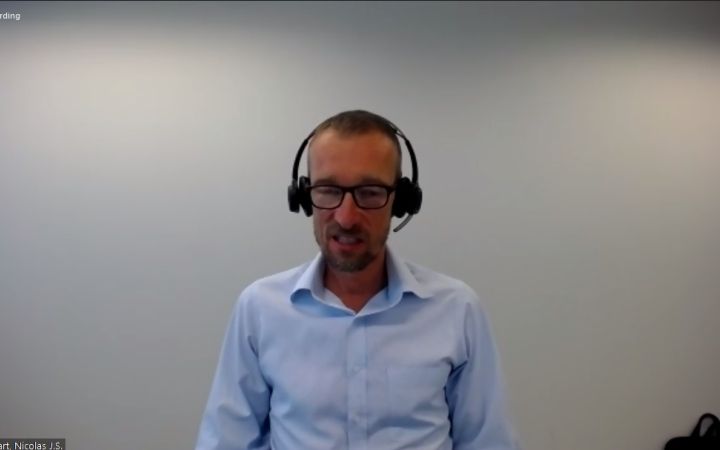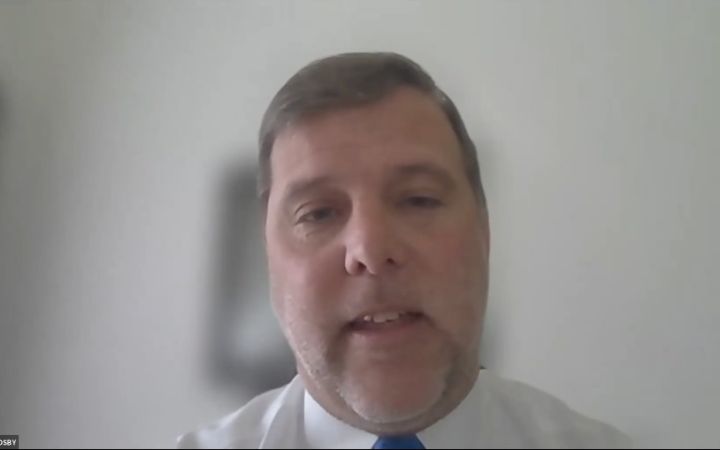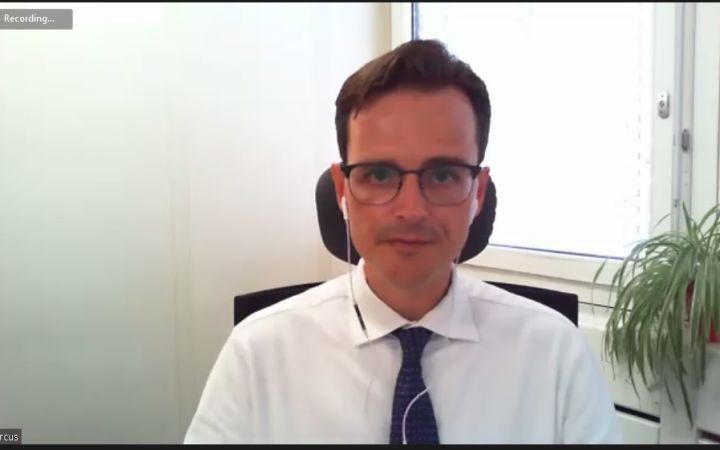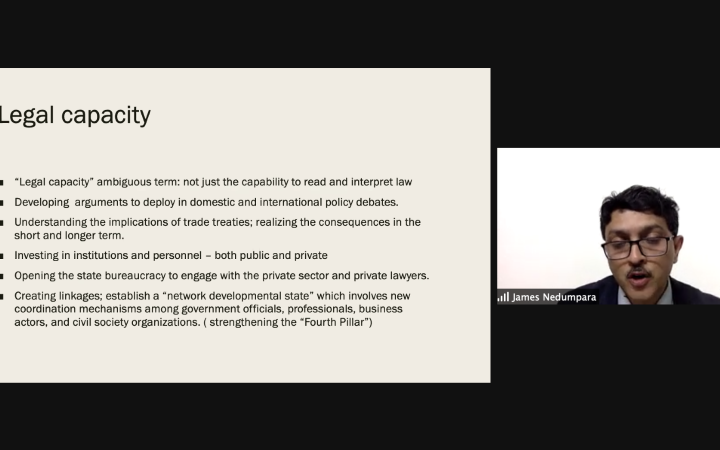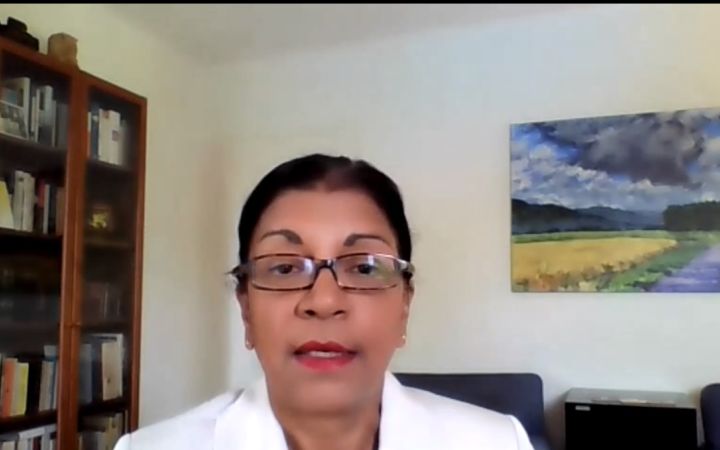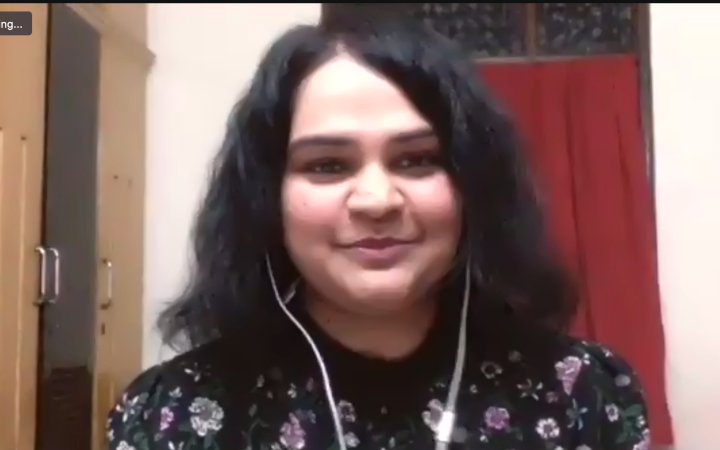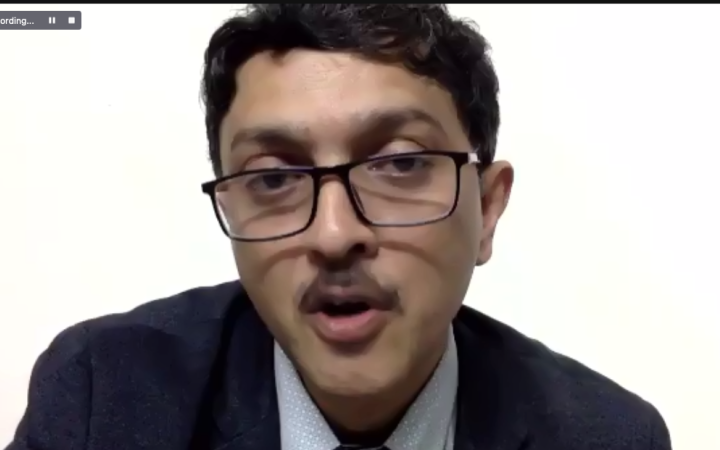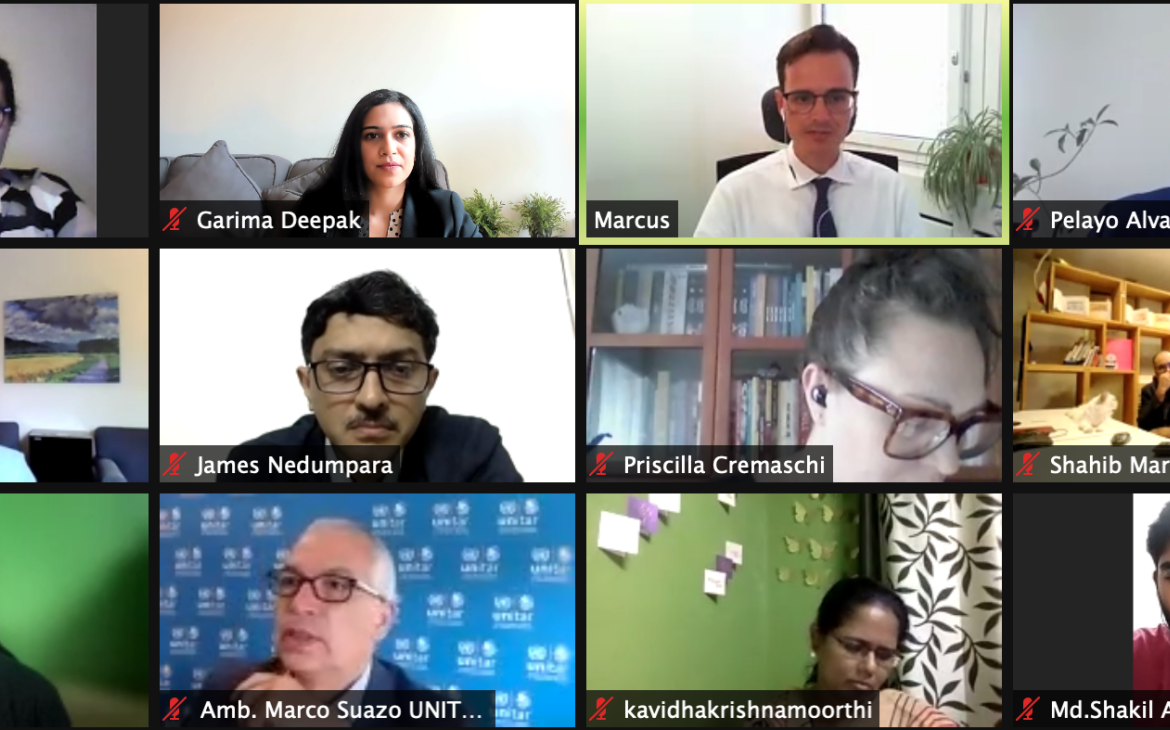23-25 June 2021, New York, USA, Virtual - The United Nations Institute for Training and Research's (UNITAR) office in New York organized a three-day virtual workshop, “Solving Disputes at the WTO for developing Countries” held on 23-25 June 2021. This training was supported with funding allocated from the Swedish International Development Agency’s (SIDA) contribution to the UNITAR Strategic Framework Fund, under the programme ‘Leveling The Playing Field’ which focuses on the development of skills and knowledge of Least Developing Countries.
The event was attended by approximately 95 delegates from around the world via an video conferencing platform. Mr. Marco A. Suazo Head of Office, UNITAR New York opened the first session welcoming the participants and introduced Prof. Dr. Peter L.H. Van den Bossche, Director of Studies of the World Trade Institute, University of Bern. Session 1 was led by Prof. Dr. Peter L.H. Van den Bossche, Director of Studies of the World Trade Institute, University of Bern. He provided an overview of the WTO dispute settlement system, along with its importance for the developing countries. Prof. Dr. Bossche examined the current crisis of WTO dispute settlement that caused an imbalance and overload at the WTO dispute settlement system and discussed future possibilities of overcoming this crisis.
Ms. Garima Deepak, Legal Consultant at UNITAR, then introduced Ms. Maria J. Pereyra Senior Counsellor, WTO Legal Affairs Division, Geneva, who took over session II to talk about the Main Actors in the WTO Dispute Settlement. Ms. Pereyra explained what the Dispute Settlement Body is and its functions along with the other primary players such as the complainants, respondents, third parties and other actors like arbitrators, experts among others. A breakdown of the panels and distribution of equality roles was also provided. The session ended with a Q&A session between the panelist and the participants.
Ms. Deepak thanked Ms. Pereyra at the end of the presentation and introduced Ms. Tashi Kaul Dispute Settlement Lawyer, WTO Rules Division, Geneva, who led session III - Basis for a Valid Complaint at the WTO. She explained the purpose and scope of the WTO Dispute Settlement System under the covered agreements, mentioning the types of complaints that can be filed when initiating a dispute. Ms. Kaul explained what measure is, and stressed on the importance of being properly identified and a brief summary of the legal basis sufficient to cover the problem. She mentioned that “measure” includes laws, regulations, administrative instructions and policies. Ms. Kaul also discussed that the difference between “as such" and "as applied” measures. She ended Day 1 of the workshop with another Q&A session.
Ms. Cherise from ACWL began her presentation on ‘Special Rules Applicable to Disputes Involving Developing Countries’ with a brief description of ACWL and then moved on to discuss the evolution of the treatment of developing countries since GATT since 1947. Developing country status, definition, rules, and flexibilities were discussed before Ms. Cherise dived deep into special rules applicable to dispute settlement involving developing countries which included- safeguarding interest, flexibility commitments, technical assistance, and rules related to least developing country members. Past cases were used as examples to better explain all rules and provisions. Ms. Cherise ended her presentation with a short discussion on the practice of self-designating developing country status in the WTO and then welcomed questions from the attendees.
Session 2 of day 2 was hosted by Mr. Nicolas J.S Lockhart, Partner at Sidley Austin, Geneva who presented on the ‘Stages of the Dispute Settlement Process’. Mr. Nicolas first, gave the participants an insight into common WTO disputes and discussed objectives and procedural features. He then, moved on to give a thorough explanation of the four stages of the dispute settlement process starting from original proceedings, implementation period, compliance proceeding to the final stage of retaliation. Functions and key features of all four stages were discussed in detail. Towards the end Mr. Nicolas briefly touched upon the topic of alternative proceeding and finally, welcomed questions from the participants.
The final session of day 2 was on ’Alternatives to Legal Dispute Settlement’ by Mr. Daniel C. Crosby who is a Partner at King & Spalding, and manages the Geneva office. Mr. Daniel began the session with an explanation of the difference between legal dispute settlement and diplomatic dispute settlement. Next, Mr. Daniel elaborated on four topics – court of public opinion, consultation outside of the formal dispute settlement process, formal alternatives within the WTO and finally, dispute settlement process as an exercise in diplomacy rather than litigation and effectiveness of the same in select few cases. Questions were asked towards the end of the session and Mr. Daniel very graciously answered all questions directed at him.
Ms. Garima Deepak thanked all attendees and panelists for their participation.
On the third and last day of the event, the participants were by welcomed by Mr. Pelayo Alvarez, New York Office Coordinator and Ms. Garima Deepak, Legal Consultant of UNITAR, who then introduced Mr. Marcus Ramalho Career Diplomat, Brazilian Mission to the WTO, Geneva. Mr. Ramalho took over session 1 which focused on “Experiences of Developing Country Members at the WTO”. Based on his experience as a career diplomat from Brazil, he mentioned that there are two approaches when it comes to resolving disputes while providing the example of Brazil. Mr. Ramalho also provided an example of a negotiated document by Brazil at the time of the Uruguay Round which acted as a communication. He explained how Brazil reacted to the initial challenges under the new enhanced legalistic dispute settlement system. Mr. Ramalho mentioned that many disputes are resolved at the consultation stage without having to move on to the litigation stage. He concluded the session by stating that not adopting a panel report may not producing legal effects.
Moderating the session, Ms. Deepak thanked Mr. Ramalho and introduced Professor Dr. James Nedumpara Head of the Centre for International Trade and Investment Law, India. Dr. Nedumpara continued the discussion on “Experiences of Developing Country Members at the WTO”. He started with a brief background of the WTO dispute system. Dr. Nedumpara stressed on the importance of active participation in the WTO dispute system, while providing examples. Concluding his presentation, he discussed the advantage and importance of being a repeat player in the system which helps gain more understanding of how disputes are decided and emphasized the importance of being a part of the system.
The session was continued by Ms. Cherise Valles Deputy Director, Advisory Centre on WTO Law, Geneva, where she gave a brief history on what Advisory Centre on WTO Law, its purpose and what it provides. Ms. Valles provided examples of developing countries that have participated in WTO dispute settlements proceedings since ACWL was establishedShe mentioned how ACWL supports the developing countries at various stages of the WTO disputes. The first session of the day concluded with the Panelists answering the questions posed by the participants.
Ms. Deepak introduced Ms. Gitanjali Brandon Career Diplomat, India, who was the first speaker for the session “Suggestions for Capacity Building.” She explained how developing countries and smaller members have been participating in the dispute settlement system since the inception of the WTO and binding dispute settlement; along with providing examples. Ms. Brandon stressed the importance of capacity building for developing country members in the WTO dispute settlement. She shared her experience as India’s Chief Dispute Settlement delegate in terms of capacity development for trade lawyers and trade negotiators. She also recommended establishing an institution that would specialize in training young lawyers to prepare them for international trade law disputes.
The session was continued by Professor Dr. James Nedumpara Head of the Centre for International Trade and Investment Law, India. He explained the importance of building legal capacity. Dr. Nedumpara stressed the importance of proper evaluation of the domestic policies and stressed the need for training and capacity building programmes to enhance awareness. He discussed the roles of domestic institutions while providing examples. Dr. Nedumpara and Ms. Brandon ended the session with a joint Q&A discussion with the participants.
At the end of the event, Mr. Suazo thanked the panelists for sharing their expertise and knowledge with the participants. He also thanked the participants for their enthusiasm, active participation, eagerness to learn and engagement with the panelists.
UNITAR's Solving Disputes at the WTO for Developing Countries - Day 1
UNITAR's Solving Disputes at the WTO for Developing Countries - Day 2
UNITAR's Solving Disputes at the WTO for Developing Countries - Day 3


